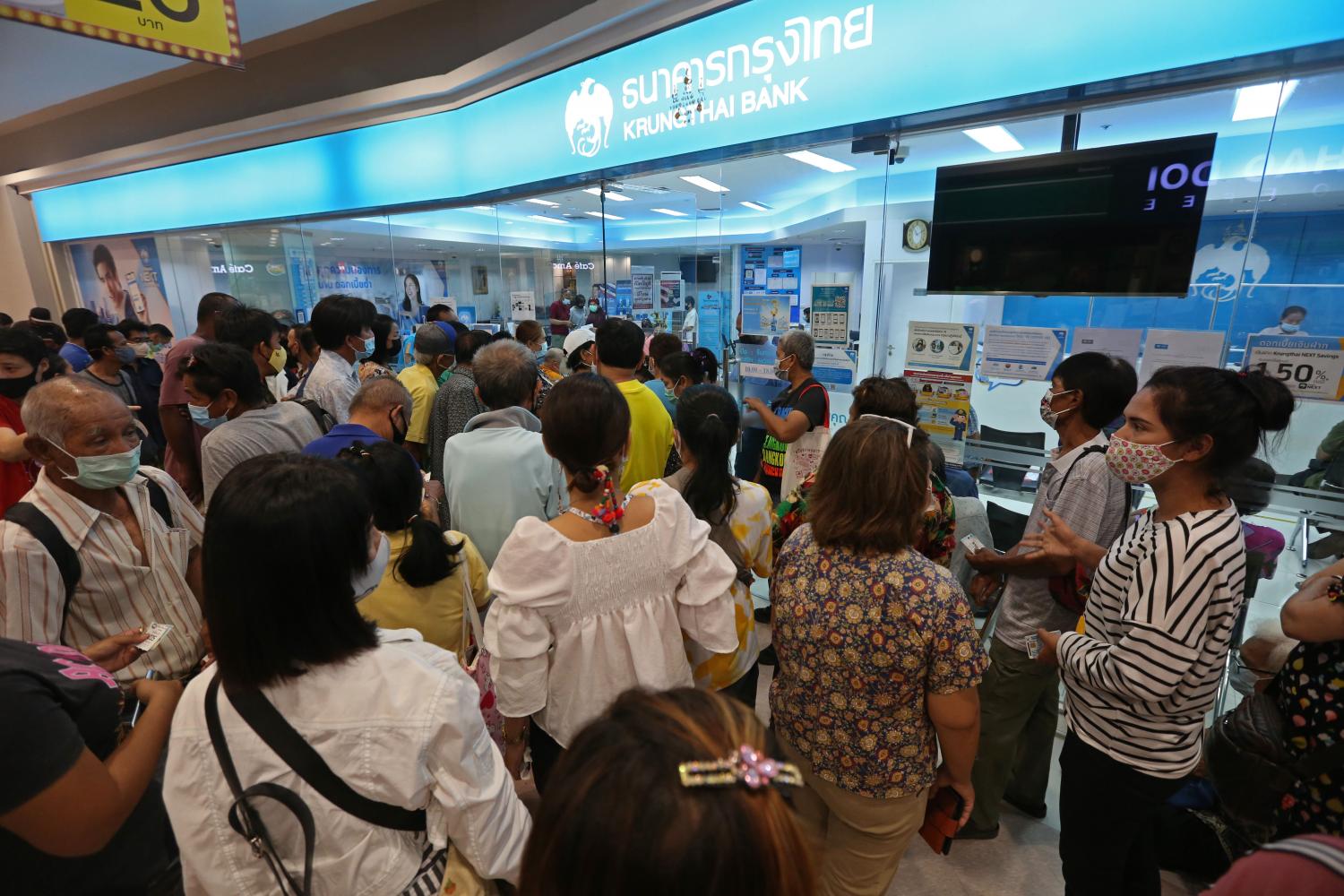
Early this week, Krungthai Bank branches throughout the country were swarmed by large mobs of people wanting to register for the Rao Chana assistance programme.
They were mainly poor and old people who either had no smartphones or lacked the technological know-how to register online. The scenes of large crowds worried people who feared they could spawn new Covid-19 clusters.
Observers could only shake their heads as the absurd images splashed across both the social and mainstream media prompted a sense of deja vu harking back to earlier rounds of Covid-19-related assistance programmes.
The attempt to do everything online without realising its shortcomings only leads to chaos.
Many people are saddened by such occurrences as they demonstrate the wide gaps in income, education, and way of life of many groups of people in Thai society.
The rich are treated almost like deities while the poor are often looked on with pity and accused of always looking for handouts.
And state assistance programmes do nothing to dispel these assumptions.
Run like charities, recipients are expected to show gratitude to the state and those in power -- officials, politicians, government leaders, etc -- in a manner that only helps to perpetuate the patronage system.
Thai people already enjoy a number of social welfare programmes of a more permanent type. School children receive free lunches. Old folk like me and the disabled receive a monthly stipend for living expenses, although the amount is so small it hardly matters.
For old people, it's 600-800 baht depending on your age. Disabled people receive 800 baht a month.
The most celebrated welfare scheme is the 30-baht health care programme, which later morphed into the current Golden-Card programme.
The Covid-19 pandemic brought about several cash-assistance programmes by necessity as businesses closed and workers lost their jobs.
But large numbers of people were left out because of a lack of technological know-how, inadequate planning and the state's inability to correctly assess the number of people in need who might have trouble accessing the aid.
The current situation once again draws attention to the country's social programmes and whether they are adequate for a country with such wide disparities and an ageing population.
Several civil society organisations and social advocates have long called for more humane social programmes that treat everyone with equal respect and which provide sufficient living expenses or services.
A large number of people are opposed to the idea and question where the money to finance all these programmes will come from.
It's a valid question as whichever way you look at it the obstacles are enormous.
Proposals include an examination of budgetary allocations to each governmental unit. For example, it has been suggested that huge increases for defence should be pared down.
The national budget increases on average 5-10% a year while that for defence increases by 15% a year. National defence is important, I understand. But we have not been at war with anybody for at least four decades. So, why do we need to keep increasing defence budgets at such high rates?
The only time that weapons purchased with tax money were used in a real-life situation was when they were fired at Thais who were exercising their right of expression against the government.
It's a matter of priority. To put it coarsely: what deserves more money -- welfare or weapons?
But money can also come from making the tax system more progressive and fairer. The top 1%, particularly, must be made to pay their fair share.
I don't want to get into the argument over whether taxing corporations and rich people more heavily would deplete the overall level of available investment capital and be detrimental to the economy.
We only need to look at some developed countries that are able to tax their citizens heavily, without causing an uprising, and grow their economies further while still providing excellent welfare for their people.
As I see it, the real obstacle to a more humane welfare system is not money.
When the idea of providing universal health care was first proposed, very few people thought it was feasible. But Thaksin Shinawatra, being a shrewd businessman, believed it could be done. And he knew its potential in terms of popular votes. He adopted it as one of his main policies, and the 30-baht health care programme was born.
No, the real obstacle is the archaic mindset of the establishment and political system.
To have a universal welfare system, we need the participation of the people. They need to be able to speak out and express their needs in order to have leverage in any negotiation.
But we don't. The current political system and political masters simply do not allow it. Why? Because a humane welfare system is a threat to the patronage system as it necessarily leads to reduced inequality and a fairer society.
And that means fewer privileges for the elites and more power to the people.
